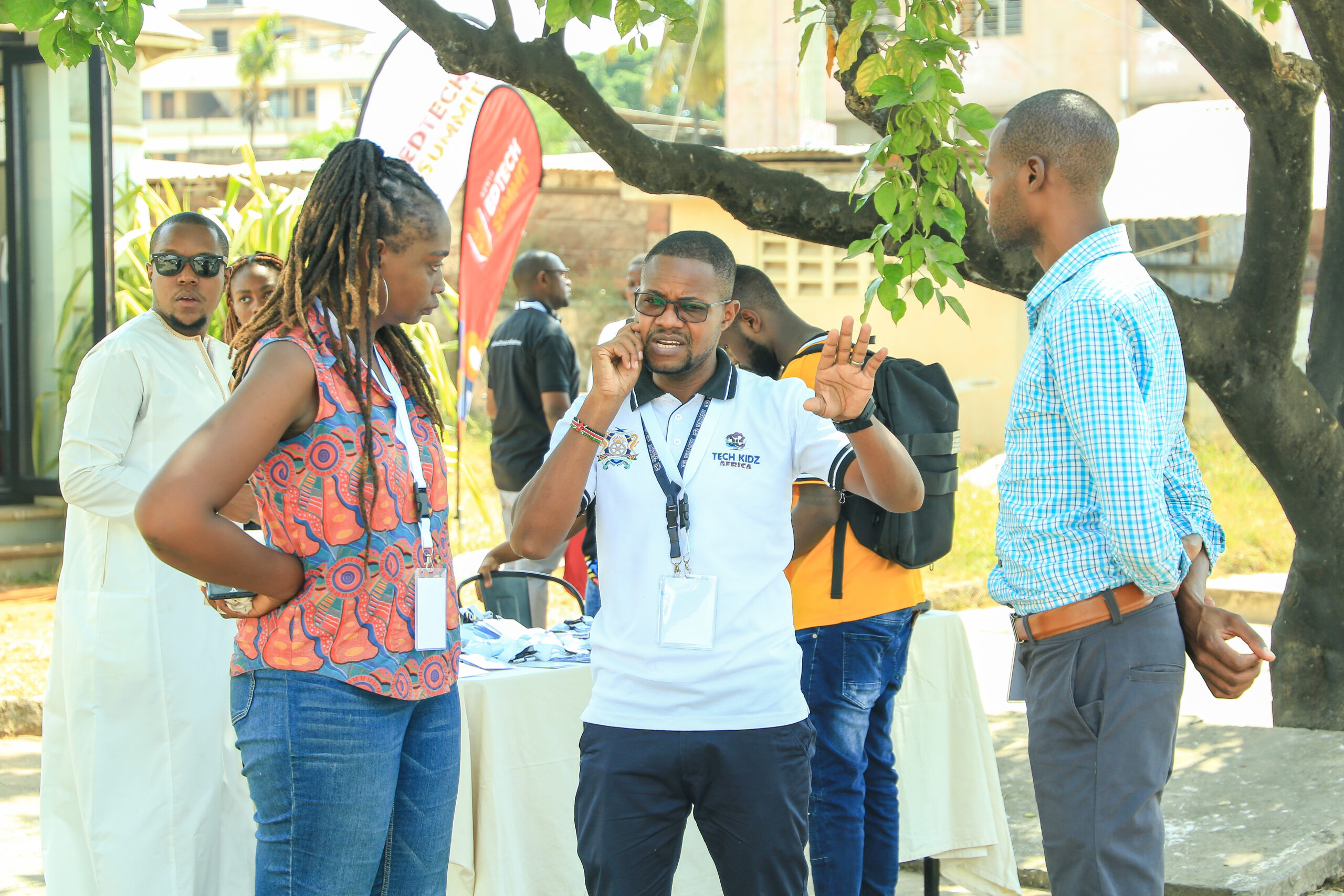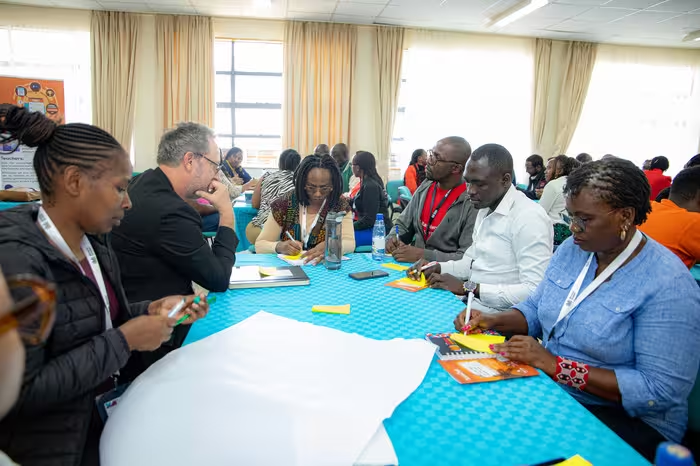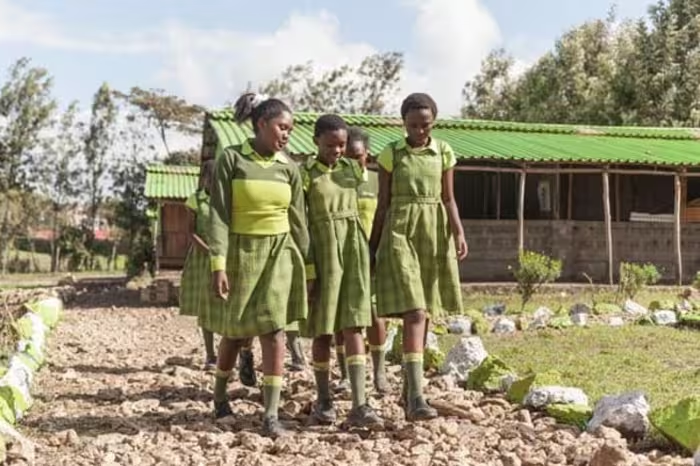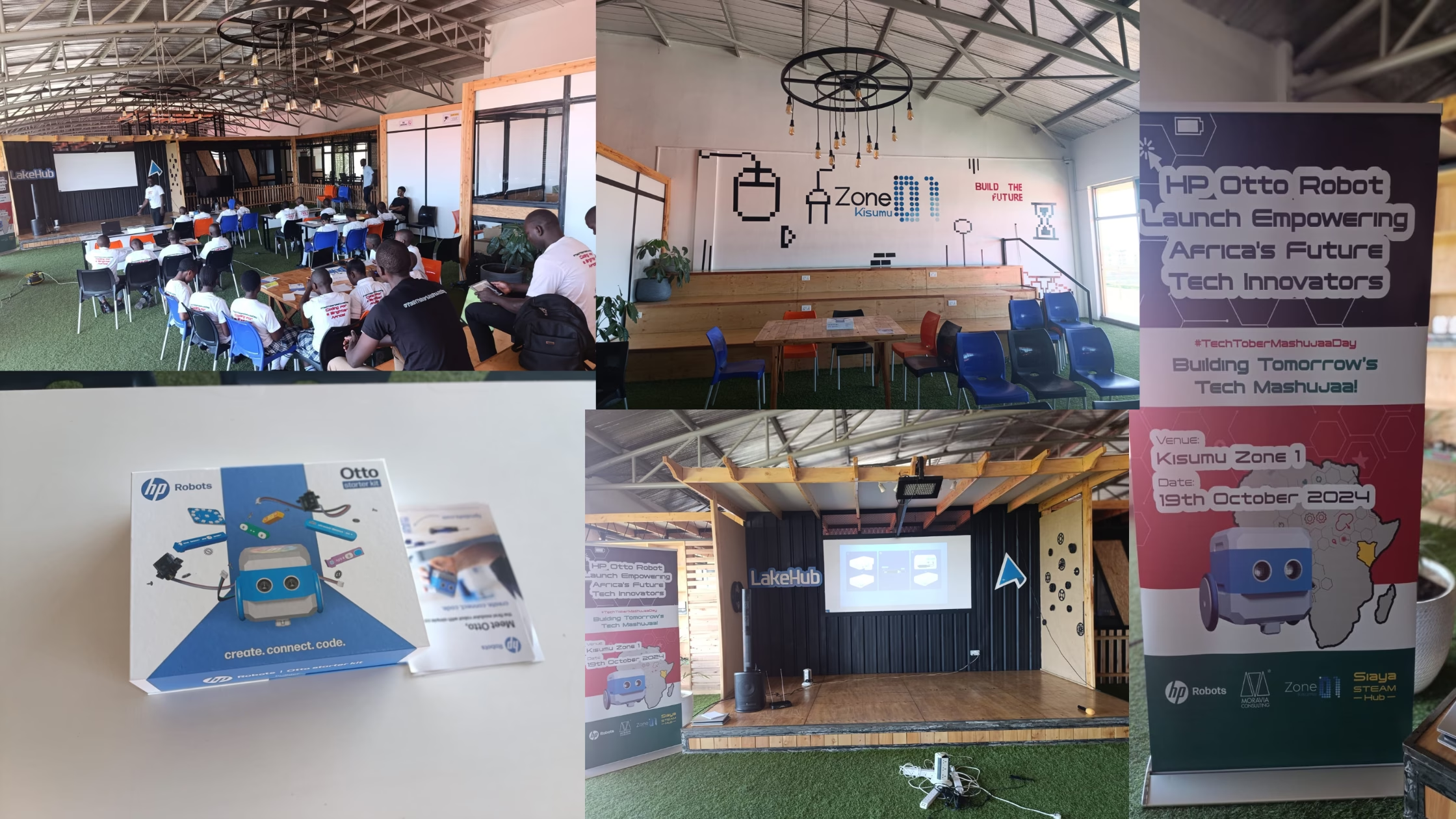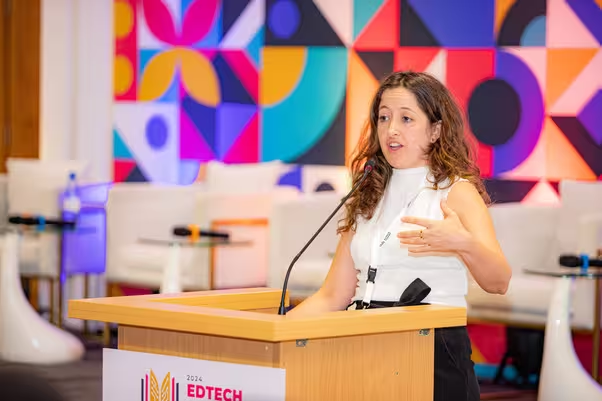By Aura Ruth
As the world evolves, everything is taking on a new shape, with digital space taking over in all sectors and introducing new technologies.
Kenya is one of the countries that is quickly evolving and ensuring that it is not left behind by introducing digital working spaces not only in offices but also in schools. The introduction of the CBC was one of the new technologies that were introduced in learning institutes, especially in public schools.
Today, EdTech community experts are working towards promoting digital literacy in schools in Kenya and ensuring that learners, teachers, and parents are introduced to and made aware of the importance of technology in schools.
Despite the efforts by governments, the EdTech community, and other stakeholders to ensure that there is inclusivity of technology among learners, there is still a gap when it comes to learners with disabilities who have been left out, especially those who are mentally handicapped.
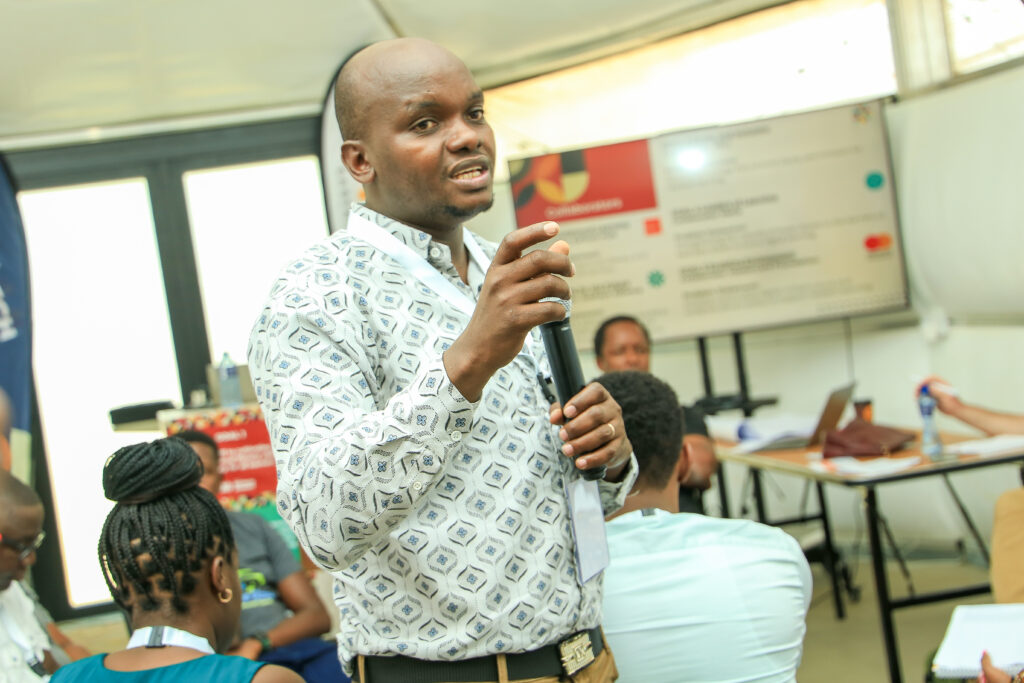
The Action Foundation head of programs, Stephen Ikonya, noted that Kenya has a big gap in inclusion and that women, girls, and children with disabilities have always been left out of technology programs.
Schools are also struggling to get resources that can enable digital literacy learning in their institutions because it is expensive and hard to maintain.
The language barrier among learners, teachers, and illiterate parents is still a challenge that needs to be addressed. Teachers cannot also contextualize the content to ensure inclusion in classrooms.
Philip Okidi, a teacher at Pwani Secondary School for the Deaf, said that schools and educational institutions should prioritize accessibility and diversity in STEM. He called upon all stakeholders to ensure that girls are not denied the opportunity to access their rights to go to school because most parents do not allow them to attend school. He said that learners with disabilities should also be given postsecondary digital support just to ensure that they do not sit home idle.
The government and key stakeholders were called upon to ensure that teachers are retooled to enable inclusivity.
The national government, through the Ministry of Education, has also come out to support the initiative of digital literacy in schools by providing training to teachers.
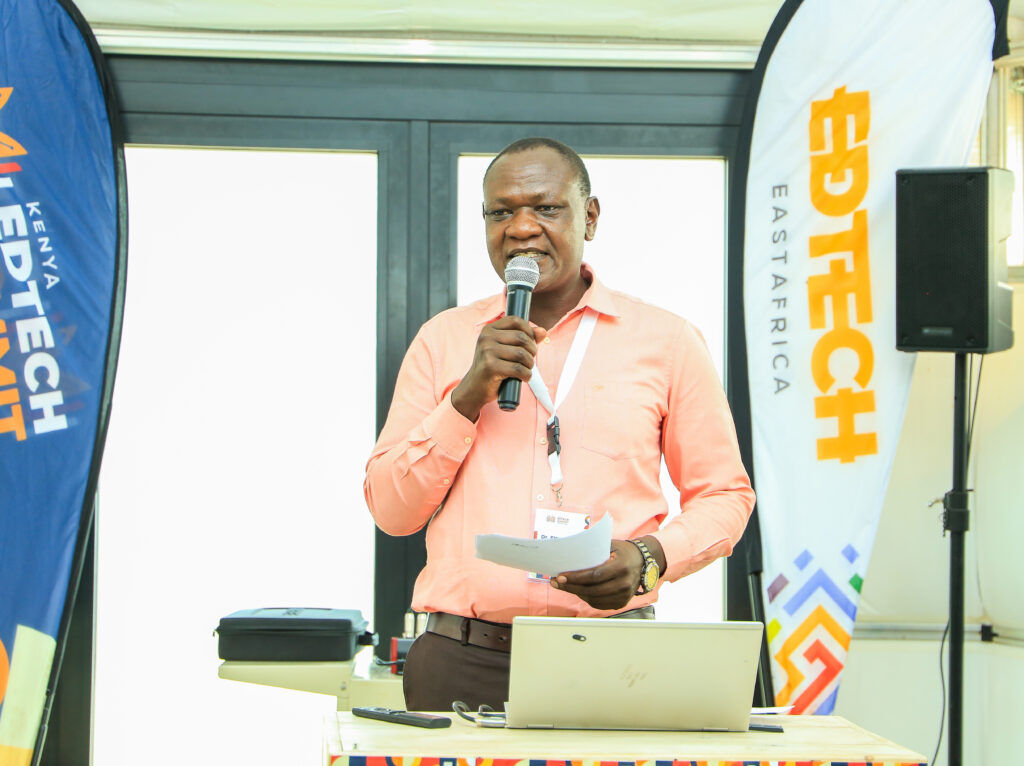
Dr. Robert Juma Wamalwa, a member of the Presidential Working Party on Education Reforms, stated during the 2024 Pwani EdTech Summit that the government and its agencies have started a journey that goes beyond the bounds of conventional education thanks to the winds of technological innovation.
In this rapidly evolving digital landscape, he said that the interception of education and technology has become the cycle of progress shaping the way children learn, how they are taught, and ultimately the future of society.
Dr. Wamalwa said that there is a need for the EdTech community, the government, and other stakeholders to reflect on the power of collaboration and imagination because the digital era has presented opportunities to enhance the learning experience, breaking down barriers and creating a conducive environment for learners around the globe.
The 2024 Pwani summit took place in Mombasa at the Close the Gap Hub. Jecinter Nduta, manager at Close the Gap Hub, a tech incubation hub where the 2024 Pwani summit took place, said that Close the Gap, a Belgium company, was brought to Mombasa to make it more inclusive for Mombasa people because there was huge innovation potential.
Changing the Norm
EdTech East Africa, supported by the Mastercard Foundation, is working closely with East African countries to ensure that learners are introduced to digital literacy.
It is a network that began 10 years ago to bring EdTech communities together in Kenya with a focus on three goals, coordination, transparency, and action. It has since grown to an EdTech East Africa community of over 4000 individuals.
Dr. Wamalwa said that the Ministry of Education and the Ministry of ICT are working together with EdTech East Africa, which plays a very crucial role in delivering technology by developing ICT infrastructure for curriculum delivery and assessment to improve digital literacy among teachers’ parents and other key stakeholders. “EdTech also has a role to play in ensuring that there are enhanced accelerated education programs for marginalized learners and learners with special needs.” Dr. Robert Juma Wamalwa.
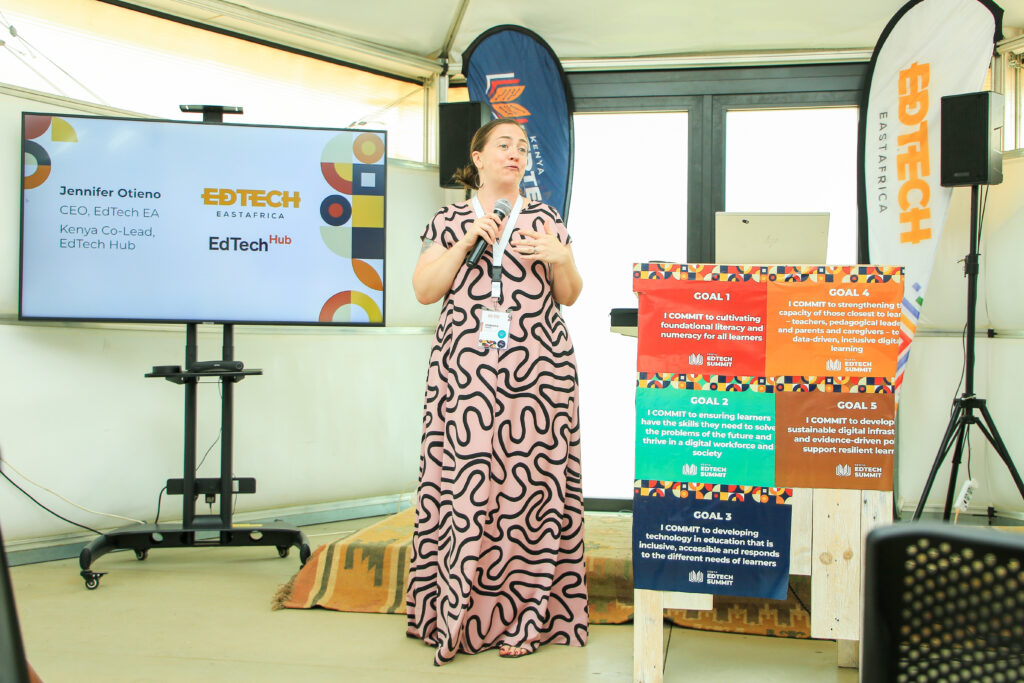
The EdTech East Africa chief executive officer and Kenya Co-Lead at EdTech Hub, Jeniffer Cotter-Otieno, said in her remarks that the organization aims to bring communities together to create relationships and forge the way forward. “Pwani EdTech Summit is about something bigger than any individual or organization; this is about us coming together. As individuals, we cannot change EdTech in Kenya, but together, it is possible, and we have the opportunity to use technology to make that transformation happen,” said Jennifer.
“We all believe that, as partners, it is important to use evidence as our common language for what allows us to make the most informed decision about how we use technology in teaching and learning. We have the responsibility of transforming the education sector in Kenya, and together, we can make that transformation,” she noted.
The CEO noted that EdTech East Africa has an agenda of helping African governments close the gaps that exist in the education sector. They are working towards having evidence-based technology by enabling teaching and learning in schools.
Evidence-based Tech
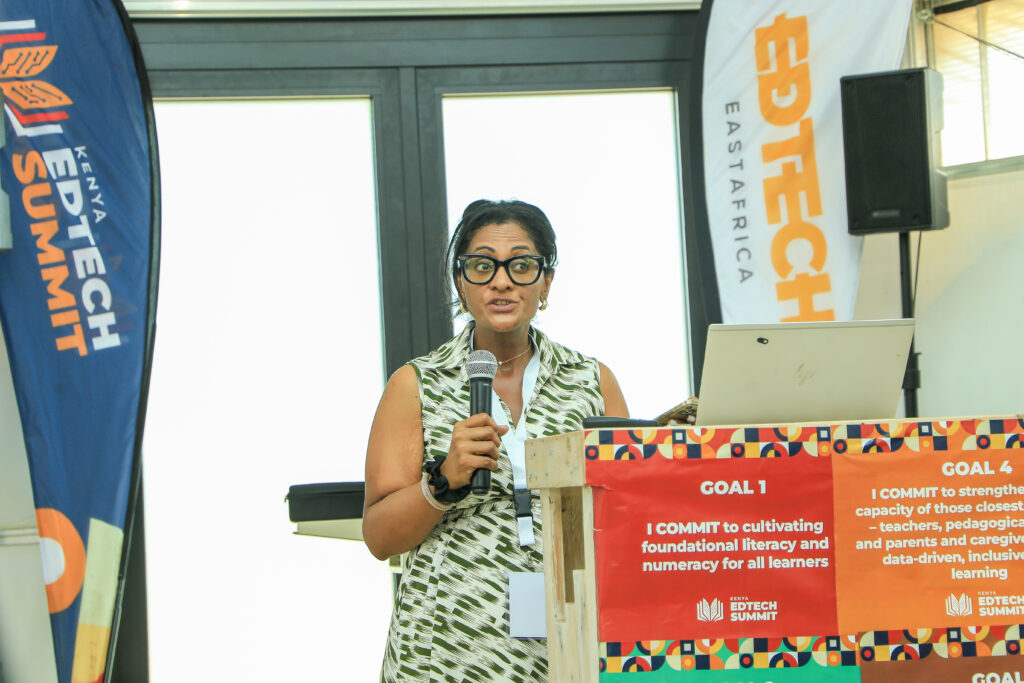
On her part, EdTech Hub executive director Verna Lalberharie noted that the EdTech Hub is a global research partnership and has a role to focus on and make sure that decision-makers, regardless of where they sit in the digital ecosystem, have access to vigorous evidence and a lot of work in regards to technology and education.
She noted that there is a need for critical evidence that will guide developers in providing tech solutions. “There is still limited evidence on the work in low-income countries in regards to technology, so how do we as developers or policymakers handle enthusiasm, including teachers as co-creators? Their role is very essential. Parental engagement is a very critical component because children who grow up in low-literacy environments where parents lack education resources, capacity, and connections in schools that need to support the development of children’s education; therefore, we need to partner with schools to ensure that we make this happen,” Verna Lalberharie noted.
She noted that measuring learners’ experiences is critical, adding that there is still a gap in the social and emotional learning of children and their mental and physical status. Her call to action to the government, EdTech community, and other stakeholders was that as they work on EdTech solutions, they need to take into consideration how they consider the children.
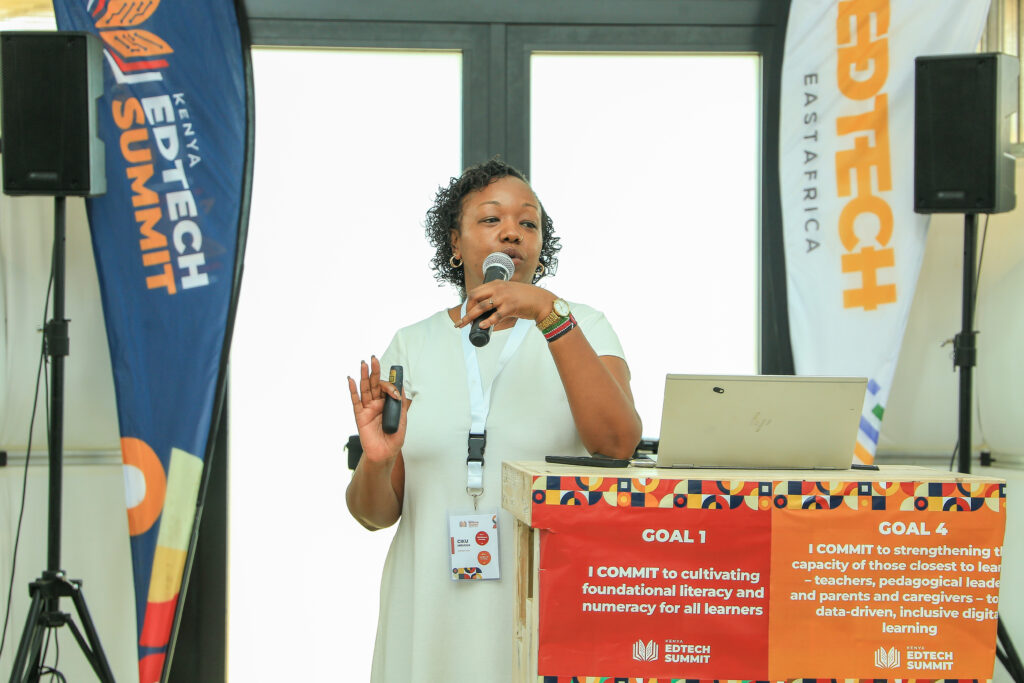
Innovation Manager East Africa, Brink Kenya, and Co-Lead EdTech Hub, Ciku Mbugua, said that they want to generate and continuously use evidence to improve and upscale in sub-Saharan Africa.
She said that EdTech Hub has a new project called Ubora Bora, which is expected to be launched on February 27, 2024, under the partnership of the Gates Foundation, who are the funders.
The new project will help enable continuous improvement and remind the education system to use evidence.
“EdTech is already doing upscale and long-term research, but we want to do speed implementation research; we want to help unlock certain things in the implementation journey. We have to work with the government and provide solutions for government productivity,” Ciku Mbugua said.
She noted that system integration goes hand in hand with scale and that the strength of evidence needs to work with the goal. The new project will fund the governments, but the partners will work with the governments.
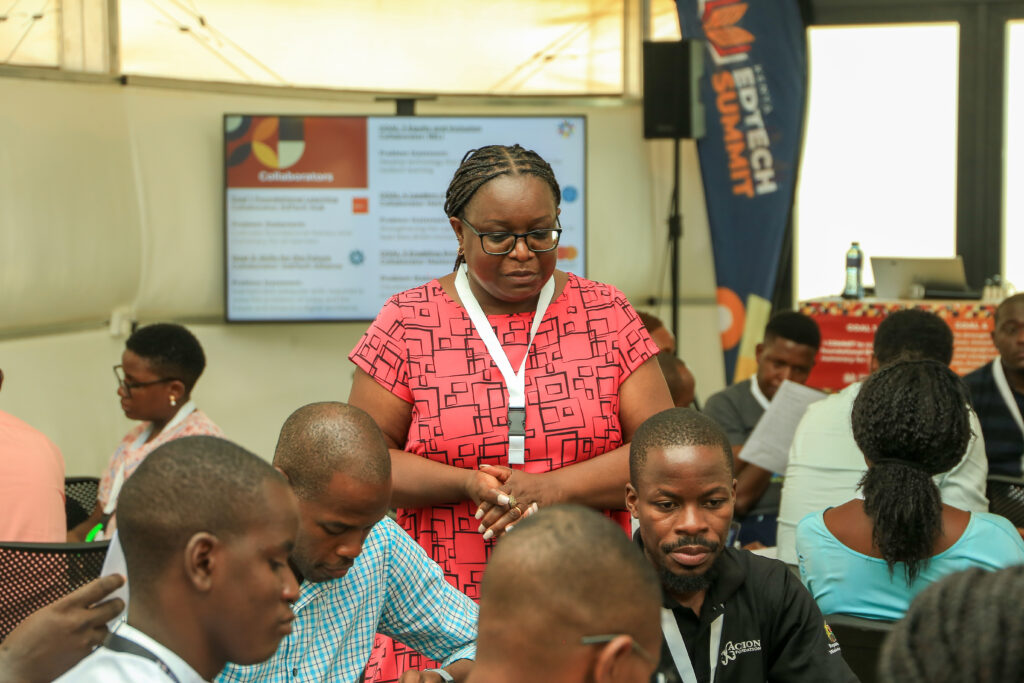
EdTech East Africa Collective Action Lead Joan Mwachi said that evidence is key, and they cannot talk about what works if they don’t talk about what works. This is because with technology, it is easy to talk about it, but those who are not in technology need evidence to believe that it works.
“We are in the process of making adaptive change consumable; we are in the era of making AI; we are now talking about intersections in education and AI: AI for learning and AI for teaching.
How are we adapting to these things? How are we preparing our teachers, what are our policies saying, and how do we use the platform of foundational learning to address skills for the future? It is all connected in one way or another, and each one of us has a role to play in that space,” said Joan Mwachi.
The key areas include a common agenda where they want to use technology to close the gap and shared measurement systems, and this entails mutually reinforcing activities. She said that if the EdTech community works together collectively, they will make a change that will work.
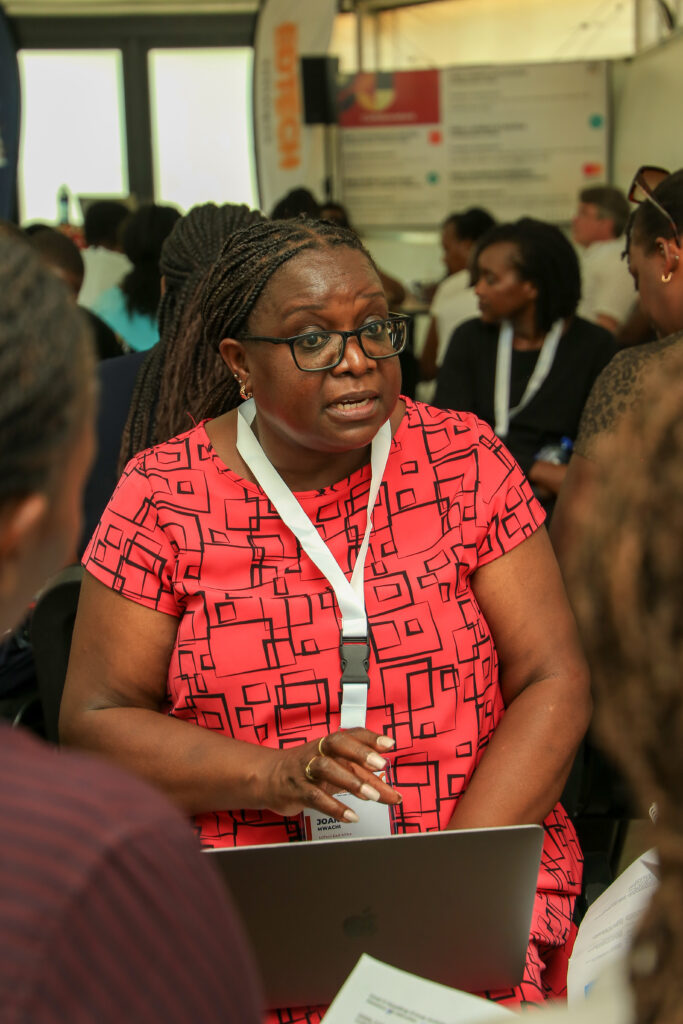
Another key to the collaborative effort is continuous communication. Joan said that the community platform is what EdTech has for people. On the backbone support, she noted that their role as an organization is to try and bring everyone together and coordinate the efforts of the community.
“Edtech is a catalyst; the members sit on the table of reforms because they work in one voice. What we are doing is embedded in the Ministry of Education’s vision to support teachers to have the required skills. We have partners who are working to ensure that we have co-facilitators in all areas, identifying skills that are needed in the future, and who are working towards producing technology that ensures equity and inclusion,” Joan Mwachi noted.
Call to Action
To strengthen the use of technology in schools beyond the connectivity infrastructures that can be used, the government and key stakeholders were also called upon to ensure that teachers are given access to the devices, especially by the school heads and the Ministry of Education.
Stakeholders were called upon to also ensure that young people are involved in this technology implementation in schools because they are more likely to embrace and adapt technology than the teachers.
The government was also urged to come up with evidence-driven policies that will make technology yield in schools.
“It is very important to start working with teachers and not for teachers; let them contribute to the making and validation of solutions.” William is an EdTech community member.
The representative of the Presidential Working Party on Education Reforms, Dr. Robert Juma Wamalwa, said that the Ministry of Education has support from the Ministry of ICT in the implementation of technology in schools because it cannot make it on its own.
“The Ministry of Education on its own cannot make it; it needs an extra hand and support in achieving the goals towards introducing technology to learners, and that is why EdTech East Africa plays a very crucial role in this to leverage technology at all levels of education by defaulting on ICT infrastructure for curriculum delivery and assessment to improve digital literacy among teachers, parents, and other key stakeholders,” Robert Wamalwa noted.
He said that the Presidential Working Party on Education Reforms recommended that the Ministry of Education enhance and accelerate education programs for marginalized learners and learners with special needs while upscaling inclusivity, an area in which he said EdTech will have to play a crucial role.
We also recommended the framework for operationalizing the National Open University of Kenya. This alone presents a transformative opportunity for technology to play a central role in shaping the future of education. These are the areas which he said EdTech needs to swim in.
He called upon collaboration between the government, education institutions, and the private sector as an essential player in the success of these reforms.
He noted that he is very close to the EdTech community because they are the team that can help the government achieve or fulfill the recommendations they have on the table both nationally, regionally, and even globally.
“If we talk of the African Union, that is where every country within the region must come. We need serious stakeholders and partners like the EdTech community and other opportunities because we have increased access to learning, inclusive quality education, relevance in learning and teaching, and parent and teacher professional development.
Online courses are something that EdTech East Africa can do because, within the EdTech community, we have a team of innovators who have a lot of energy to implement this.
EdTech East Africa has a plan to hold their summits in all 47 counties to create awareness of the importance of technology in schools. The next summit will be held in North and Northern Eastern, Central, and then come back to Nairobi for the 2024 national summit.
About the AuthorMs. Aura is a communication consultant, a storyteller, and a writer. She is a journalist working with Radio Africa Group, where she writes for The Star Newspaper.
